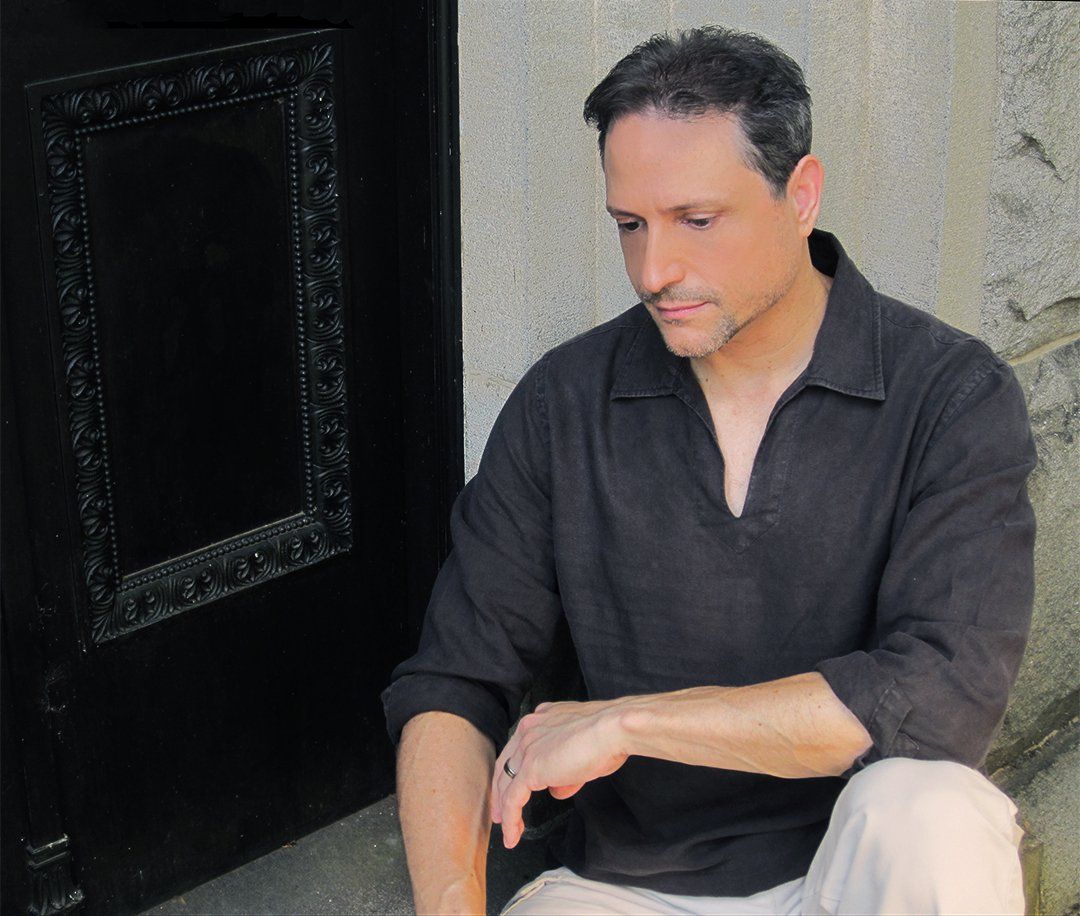Publication: EmmeK Magazine (Italy)
Interviewed by Cinzia Blanket for New Age and New Sounds Magazine
January 2009
He has left television studios and theatre stages to dedicate himself to music. After composing two albums filled with poetic and intimate sound landscapes, this versatile artist born in Buenos Aires creates a new work, completely inspired by the story of Scheherazade.
Sensitive, generous, altruistic, fascinating, actor and musician. Al Conti seems to incarnate that blue prince (knight in shining armor) described in so many fables, so desired by idealists, both young and old, who still believe in idillic love. Even in a world dominated by pragmatism over fantasy we can still find, when we least expect it, characters that seem born from a fairy tale who love to enchant by reaching to ancestral stories, lost in the night of time.
Conti enters into this category. He is a romantic artist, very introspective, who loves to speak of poetry and fantastic tales, of events that speak of love and which are timeless, such as the One Thousand and One Nights on which he was inspired to compose his last album Scheherazade and which quickly rose to top the New Age Reporter charts.
Born in Buenos Aires, but for many years living in Vermont, Al is an actor full of talent who has interpreted diverse dramatic roles, be those on television productions (such as CBS' 'As The World Turns') or theatrical (such as Rozencrantz and Guildenstern Are Dead, Andre's Mother and Poor Richard). Music, however, has always accompanied him thanks in part due to a classical bellerina for a mother and an architect and poet for a father. The desire to compose something of his own has pushed him to leave for a while stages and television studios to retell, through sounds, rhythm and melodies, stories of today and of times past. Nowadays, after composing three albums, he feels he has matured to a new musical approach, as he tells us.
Al:
"I do not have a precise scientific method when I compose. I am very intuitive. I start from a very spontaneous idea and slowly begin to mold it. When I have the right direction, I begin the selection of the instruments to create the atmosphere I have in mind. The choice greatly depends on the album in which the music will be showcased. In Scheherazade's case, being a project with Middle Eastern inspiration I developed sounds that expressed an ambiance of mystery and sensuality stemming from that part of the world. I began composing this album right after finishing my previous album Poeta. The concept came to me from one day to the next and began first in my mind. As such, the writing and recording process became simple after that. Scheherazade's story has always fascinated me and I looked to create harmonies and arrangements to tell its emotional language."
Cinzia:
Your previous albums, particularly Shadows, seem more intimate and meditative than Scheherazade. Has your work style changed since?
Al:
"Yes, very much so. Shadows was an album that compiles songs composed at various times in my life. They speak of memories and songs created at particular moments. I wrote these songs mostly for myself, never imagining that years later they'd form part of an album. Poeta was a more coherent work in the sense that it follows a more structured form and expresses emotions, images and experiences in amore cohesive way as it was composed in a brief, year's time. To date, Scheherazade is my more structured work, conceived on a precise work of literature."
Cinzia:
"Do you feel that there are profound differences in the emotional plane and personal research between being an actor and a musician?
Al:
"I have worked as an actor since I was very young. It was what I always wanted to be. Music has always accompanied me, but I never expected it would become my career. When I needed to enter a certain role I would allow my emotional states become influenced by music. For example, to interpret a role in which I needed to find melancholy and further break down into tears, I'd find Albinoni's Adagio playing in my mind, which would transport me into that emotional dimension I needed to recreate as an actor. Since working with music full time I have realized that I express my essence in a more profound way. Through the sounds that I choose I can express the various facets of my soul. It is a much more diverse way of communication between me and my listener."
Cinzia: "You support the Until There's A Cure foundation. Can you tell us about it?
Al:
"Until There's A Cure is a foundation that promotes research and the raising of funds for those affected by HIV/AIDS. I also support two other charities which work with Alzheimer's and Leukemia. These tree illnesses I am quite familiar with because they have touched people I love. I think that, as an artist, in my own little way I can bring to people's attention the wonderful work of these people who help others with such humanity."
Cinzia:
"You were born in Argentina, but for many years have lived in the United States. Which elements related to your Latin roots do you feel stronger within you?
Al:
"I believe that my Argentinean origins have influenced the way I write music. I also have been greatly influenced by the Italian culture thanks to my mother who originates from your country. At home we always listened to the music of Italian artists such as Mina, Adriano Celentano, Peppino Di Capri and Nico Fidenco. We also listened to music from other parts of the world, but the Italian sound has been one has always colored sounds I love to compose. Naturally, my taste is also quite broad and, as is demonstrated in my last album, I like to travel into the ethic sounds territory." ~


